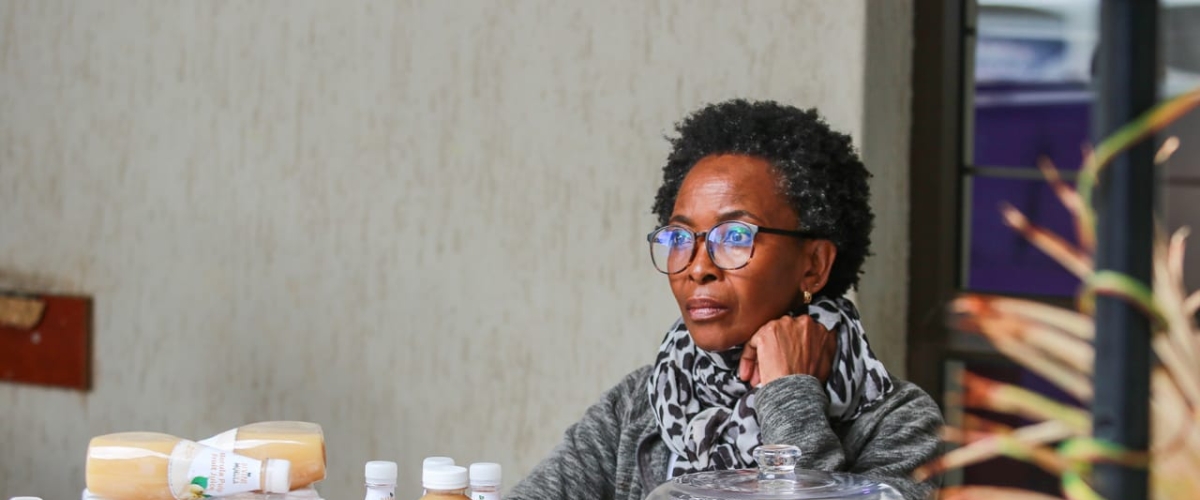
By Keikantse Lesemela
One of the abundant natural resources found in Botswana - the Morula fruit tree - is not only useful as food but is also loaded with enormous economic benefits that residents can utilize to generate income.
Predominantly found in Southern African countries such as Botswana, Namibia, South Africa, Eswatini, Zimbabwe, Malawi, and Mozambique, the morula tree is now being highly commercialized. People have now begun making various products including processed food, skincare products, fragrances cooking oil, and wines from this fruit tree.
The latest study indicated that the annual fruit yield per tree in Botswana and Namibia is 700kg per tree. In Botswana, there are about 28 companies manufacturing various products from morula fruits.
One of the entrepreneurs Matilda Mpai has realized that there is so much economic benefit from morula trees and has taken advantage of the opportunity to generate income and create employment for members of the community in her village. “Doing business with these natural resources brings more returns to us as residents and it encourages us to become caretakers of the natural resources because it’s the source of our income”, Mpai said.
Her processing facility has employed six people and is a source of revenue for the women who help in collecting fruits from the forest.
Morula plays a fundamental role in the ecosystem and provides a number of important services to people, animals, birds, and insects. On the other hand, skincare manufacturers in Botswana, among them, Frogirls, Ludo Beauty, White Label, Divine Morula, Shedol, and others, are now working on increasing the use of Morula oil.
The entrepreneurs are producing finished cosmetics for both the export market and local retail shops. Some of them are currently exporting regionally in countries such as Zambia with sights set on the Africa Growth and Opportunity Act (AGOA).
There is a substantial, growing demand from overseas for considerable tonnages of Morula oil from producers as well.
Recently, the Namibian estimates of the total yield of Morula fruit were placed at between 250,000 tons and 1 million tons annually, most of which rot on the ground. In 2012 a big cooperative of 1000 members produced over 6500 kg of oil with an export value of N$180/kg totaling N$1,1 million. Available figures show that about 8,000 harvesters are involved in the Morula industry mainly to obtain the nuts (Dikgeru) to extract the oil in the Namibian cooperative.
Countries are encouraged to use this natural resource wisely and protect it from extinction. The tree is protected in South Africa but is not yet protected in Botswana and Namibia.
A feasibility study on regional strategy for the protection of Marula as a resource was conducted by a researcher Mr. Olayemi Aganga. The findings indicated that Morula is starting to become a recognizable entity and oil in foreign markets. Mr. Aganga highlighted that the commercialization process of the fruit has strengthened conservation, which does not always happen especially when Non-Timber Forest Products (NTFPs) are commercialized.
“In practice, the commercialization process has led to a convergence of interests in relation to the conservation of the resource, leading to strengthened systems of community and tribal authority management of the resource, as well as increased Marula propagation at homestead level,” the findings revealed.
Associate Professor of Forestry at Botswana University of Agriculture and Natural Resources, (BUAN) Witness Mojeremane pointed out that the threat of extinction of the Morula tree is minimal as long as people use its by-products without cutting the trees. “Any resources should be managed and utilized in a sustainable way. In case people use the wood as a product there is a need to replant the trees,” Mojeremane indicated.
He found that proper management and sustainable utilization of natural resources is the best way of conserving them. “Public education and awareness creation are also among the best ways of mitigating the loss of natural resources.”
Currently, Southern African countries - Botswana, Eswatini, Zambia, Zimbabwe, Namibia, and South Africa - are working on setting up a Marula Association/Alliance which will act as a regional body to protect their interests.
The author is a journalist at the Boswana Guadian -MidWeek Sun in Botswana






